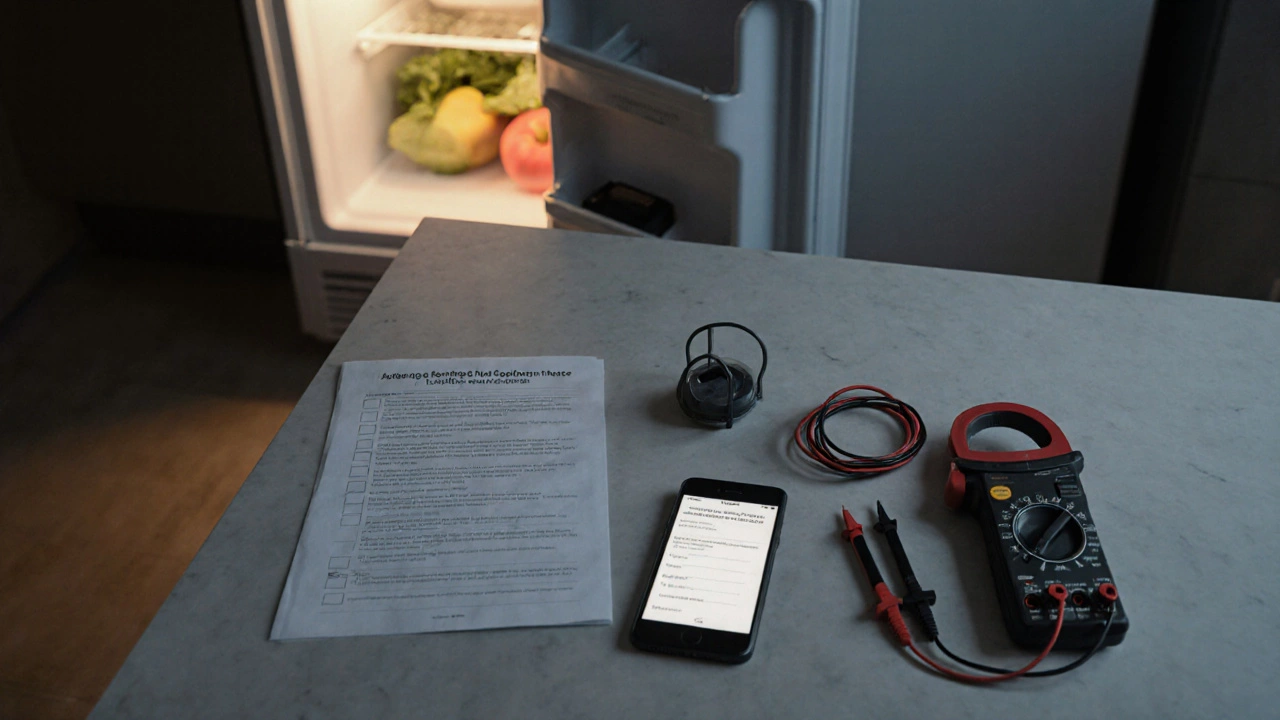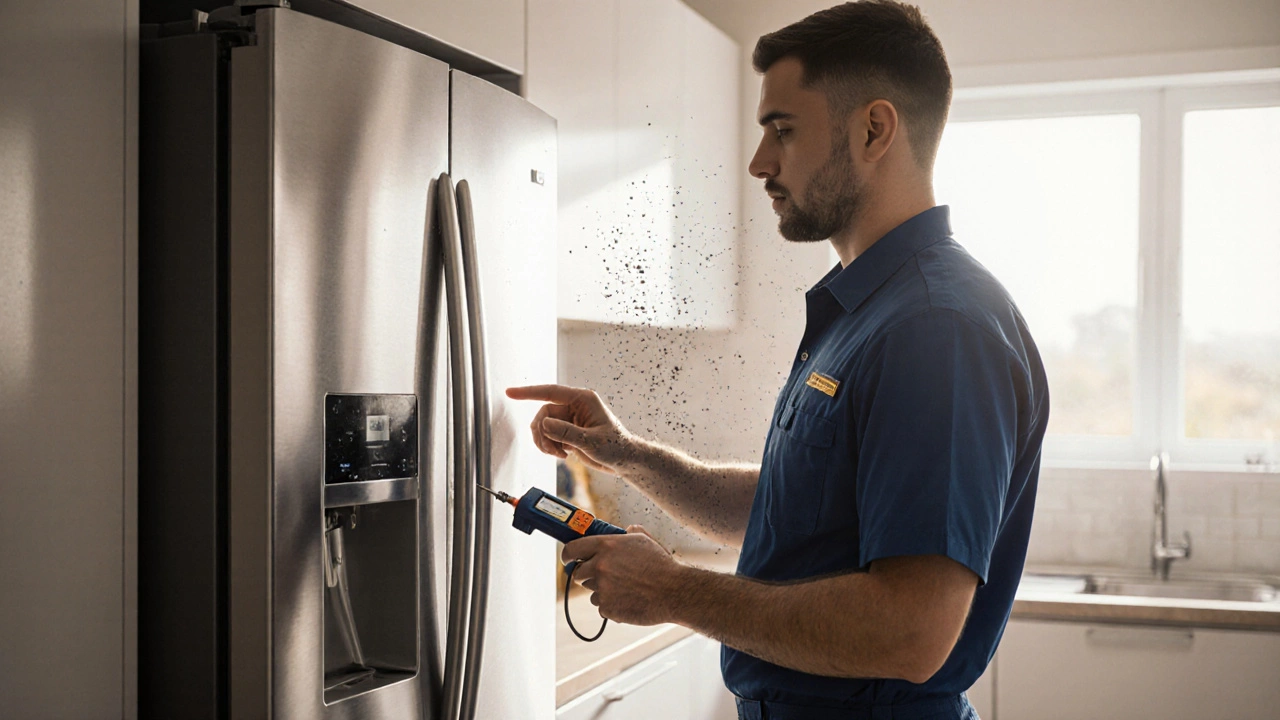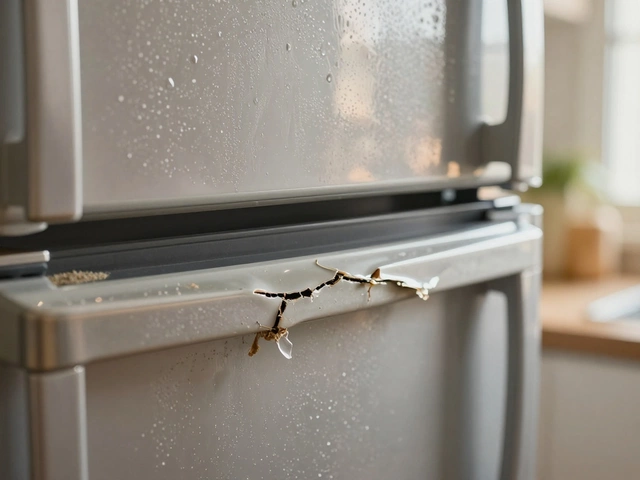Appliance Service Scheduler
Find Your Optimal Service Timing
Enter your appliance details to determine when you should schedule professional service based on manufacturer recommendations and real-world data.
When your fridge stops cooling or your washing machine starts making a noise like a drum solo, you don’t just want it fixed-you want it fixed right. That’s where appliance service comes in. But what exactly does appliance service mean? It’s not just about swapping out a broken part. It’s a full system check, a diagnosis, a repair, and often, a prevention plan rolled into one. Think of it like a doctor’s visit for your kitchen and laundry room.
Appliance service isn’t just fixing things-it’s keeping them running
Many people think appliance service means calling someone when something breaks. That’s only half the story. Appliance service includes scheduled maintenance, emergency repairs, diagnostic checks, and even advice on how to use your device safely and efficiently. A good appliance service technician doesn’t just replace a faulty thermostat in your oven. They check the wiring, clean the vents, test the door seal, and tell you if your unit is nearing the end of its life. They’re looking at the whole system, not just the symptom.
In Adelaide, where summers hit 40°C and winters can drop below 5°C, your appliances work harder than you think. A fridge running non-stop in July? A washing machine spinning through wool blankets and wet towels every day? These conditions wear things down faster. Regular appliance service helps you avoid the big, expensive breakdowns that happen when you wait too long.
What’s actually included in a professional appliance service?
Not all appliance services are the same. Some companies just show up with a toolbox and hope for the best. A proper appliance service follows a clear process:
- Diagnostic inspection - The technician connects test equipment, runs error codes, and listens for unusual sounds. They don’t guess-they measure.
- Component testing - Motors, thermostats, sensors, belts, and heating elements are checked for wear or voltage issues.
- Cleaning and lubrication - Dust buildup in condenser coils can make a fridge use 30% more power. Grime in a dryer’s vent is a fire risk. Cleaning is part of the service.
- Repair or replacement - If something’s broken, they use manufacturer-approved parts. No cheap knock-offs that fail in six months.
- Performance verification - After the fix, they run the appliance through its full cycle to make sure it’s working correctly.
- Follow-up advice - They tell you what to watch for, how often to clean filters, and whether it’s worth repairing or replacing.
This is what separates a real appliance service from a quick fix. You’re paying for expertise, not just labor.
Why you shouldn’t ignore signs of trouble
Ignoring a small problem is like ignoring a check engine light. A dishwasher that doesn’t drain properly? It might seem minor. But if it’s due to a failing pump motor, that motor could overheat and damage the control board. Now instead of a $120 repair, you’re looking at a $600 replacement.
Here are common signs your appliance needs professional service:
- Unusual noises-grinding, buzzing, or loud thumping
- Longer cycle times-your washing machine taking 2 hours instead of 1
- Higher energy bills with no change in usage
- Water leaks under or around the appliance
- Odors-burning plastic, mildew, or gas smells
- Controls not responding or showing error codes
If you notice any of these, don’t wait. A $75 diagnostic call now could save you $500 later.

Appliance service vs. DIY: When to call a pro
You can clean a fridge filter yourself. You can unclog a drain hose. But if you’re poking around inside a microwave, checking the high-voltage capacitor in a dryer, or trying to recalibrate a gas oven’s thermostat-you’re risking serious injury or fire.
Most modern appliances have electronic control boards that need specialized tools to read. A $20 multimeter won’t tell you if your washing machine’s motor inverter is failing. Only a certified technician with the right diagnostic software can see that.
Plus, DIY repairs often void warranties. If you open the back panel of a new fridge and something goes wrong, the manufacturer won’t cover it-even if the issue was unrelated. Professional appliance service keeps your warranty intact.
How often should you get appliance service?
There’s no one-size-fits-all answer, but here’s a practical guideline:
- Refrigerators and freezers - Once a year. Clean coils, check door seals, test temperature accuracy.
- Washing machines and dryers - Every 12-18 months. Clean lint traps, inspect hoses, check drum bearings.
- Dishwashers - Once a year. Descale the spray arms, check the drain pump.
- Ovens and cooktops - Every 2 years. Clean burners, test igniters, check gas flow (if gas-powered).
- Heat pumps and water heaters - Twice a year in high-use areas. Flush tanks, check pressure valves.
These aren’t just suggestions-they’re based on manufacturer recommendations and real-world failure data from repair logs across South Australia.

What to look for in an appliance service provider
Not every technician is equal. Here’s what to ask before you book:
- Are they licensed and insured? (This protects you if something gets damaged.)
- Do they use genuine manufacturer parts? (Ask for the part number-it should match the original.)
- Do they offer a warranty on their repairs? (At least 90 days is standard.)
- Can they show you the problem? (A good tech will point out the worn belt or cracked seal.)
- Do they have experience with your brand? (A Bosch technician doesn’t automatically know how a Miele works.)
Check reviews on Google or Facebook-not just the ones on their website. Look for mentions of honesty, speed, and clear communication.
What happens if you skip appliance service?
Skipping regular service doesn’t mean your appliances will die tomorrow. But it does mean they’ll wear out faster, use more energy, and become unpredictable.
Studies show that neglected refrigerators can consume up to 40% more electricity over time. A clogged dryer vent can increase drying time by 30 minutes per load-that’s hours of wasted energy every month. And in extreme cases, faulty wiring in a washing machine or oven can start fires.
Appliance service isn’t a luxury. It’s a smart investment. For less than the cost of one new appliance, you can extend the life of your existing ones by 3-5 years. That’s hundreds, sometimes thousands, of dollars saved.
Final thought: It’s about peace of mind
At the end of the day, appliance service isn’t just about fixing broken things. It’s about knowing your fridge will keep your food fresh, your laundry will get clean, and your kitchen won’t turn into a disaster zone because something failed at 8 p.m. on a Tuesday.
When you invest in professional appliance service, you’re not paying for a technician’s time-you’re paying for reliability, safety, and quiet nights.
Is appliance service the same as appliance repair?
No. Appliance repair is a single fix for a broken part. Appliance service includes repair, but also maintenance, diagnostics, cleaning, and advice. Think of repair as treating a fever. Service is the full health check-up.
How much does appliance service cost?
Diagnostic fees usually range from $60 to $120, depending on location and appliance type. Many companies waive this fee if you proceed with the repair. A full service with cleaning and minor adjustments typically costs between $100 and $200. It’s cheaper than replacing a broken appliance.
Can I do appliance service myself?
You can do basic cleaning like wiping down surfaces or clearing lint filters. But anything involving electrical components, gas lines, refrigerant, or internal mechanisms should be left to professionals. Mistakes can be dangerous and void warranties.
Do I need appliance service for new appliances?
Yes. Even new appliances benefit from annual checks. Dust, hard water, and power surges can affect performance. A service call early on catches small issues before they become big problems-and keeps your warranty valid.
What brands do appliance service technicians work on?
Most certified technicians are trained on major brands like Bosch, Samsung, LG, Whirlpool, Miele, and Electrolux. Some specialize in premium lines, others focus on budget models. Always ask if they’ve worked on your specific brand before.
How long does an appliance service take?
A basic service takes 30 to 60 minutes. If repairs are needed, it could take 1 to 2 hours. Emergency calls or complex issues like gas oven malfunctions may take longer. Most technicians will give you a time window when they arrive.







